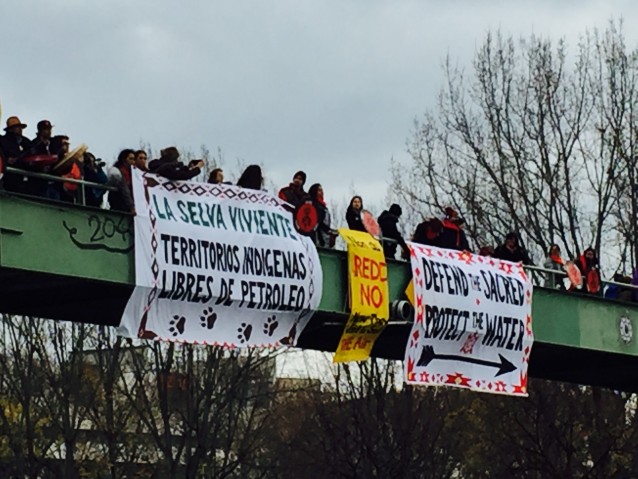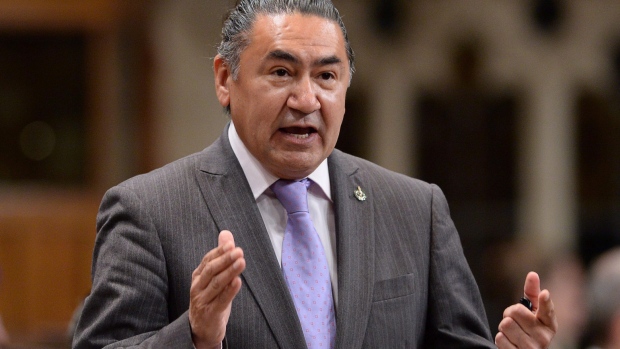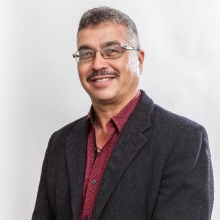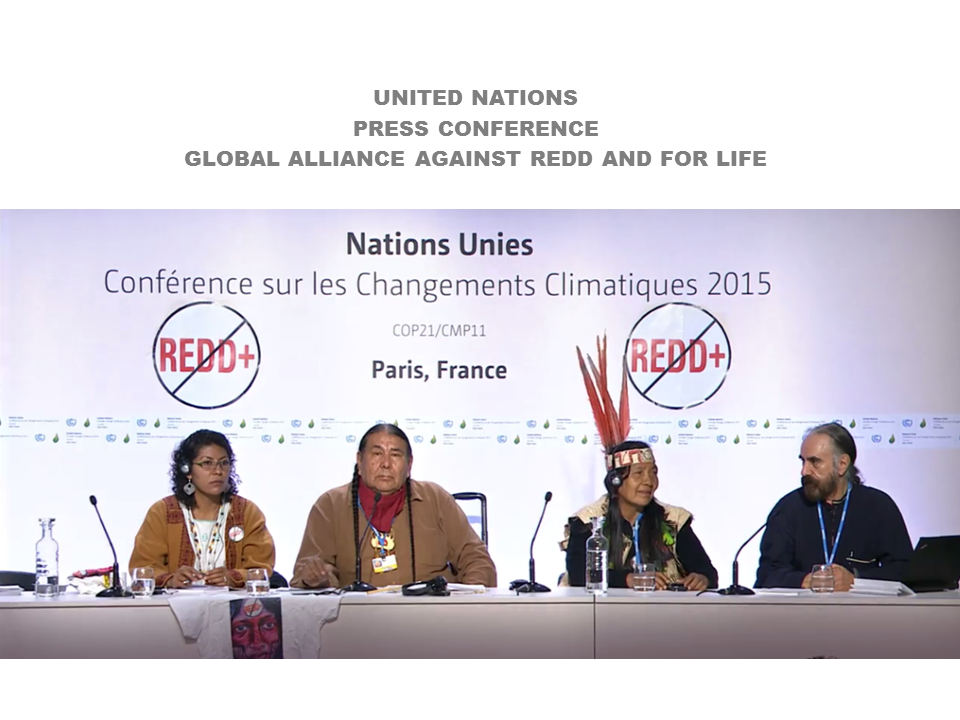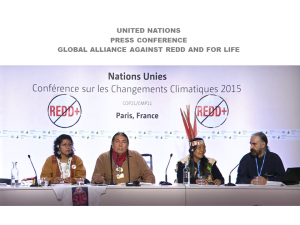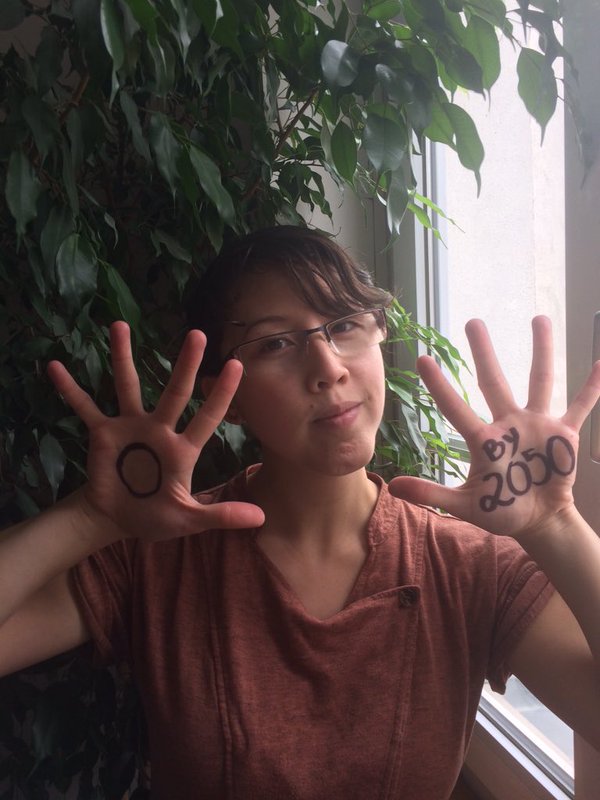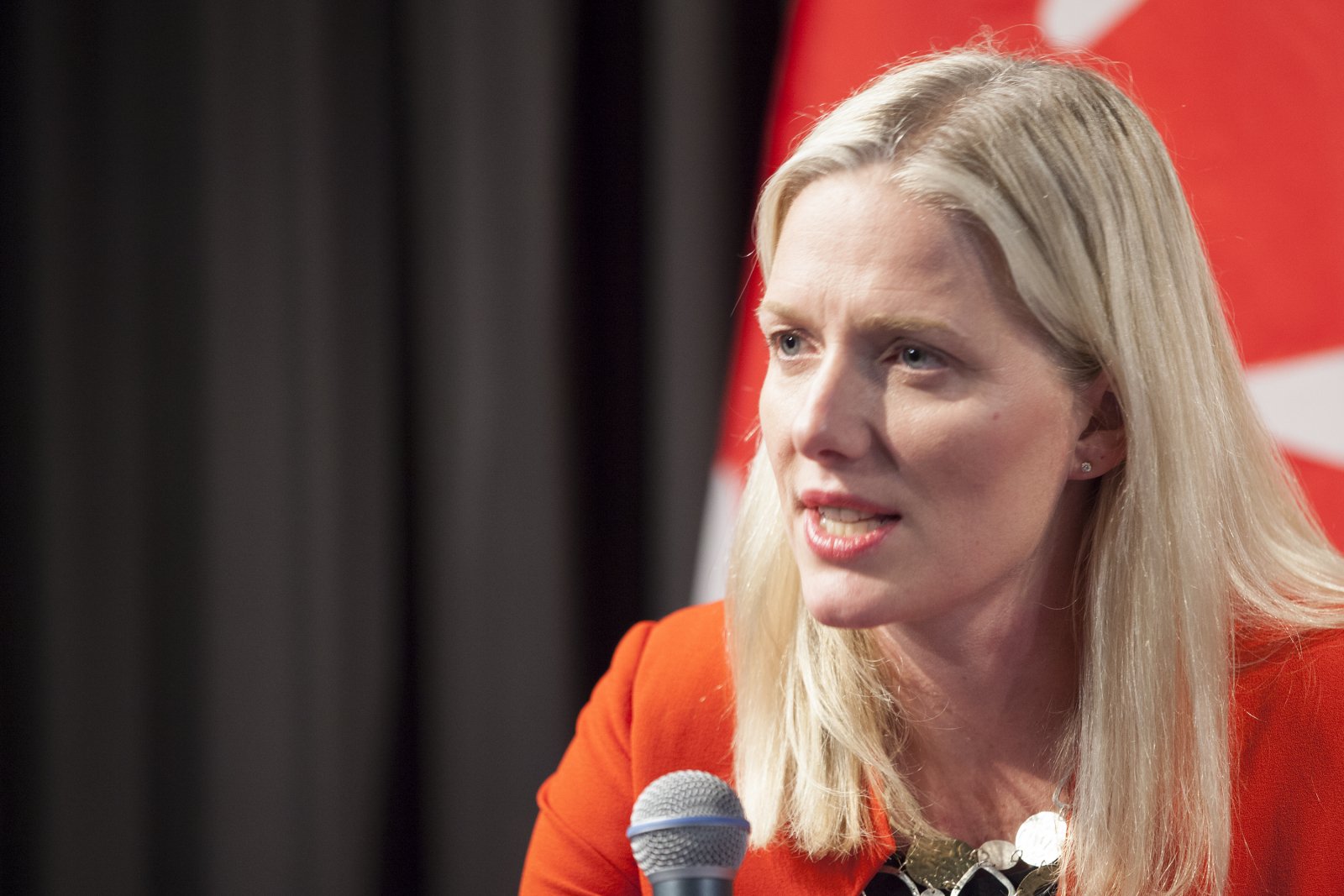
By Mychaylo Prystupa, reposted from the National Observer, Dec, 7, 2015
Sunday night, Canada surprised a world of nations and negotiators in closed-door climate talks in Paris by endorsing a bolder, more ambitious target for cutting greenhouse gases than the UN climate change summit is officially aiming for.
Canada’s Environment and Climate Change Minister Catherine McKenna told a stunned crowd that she wants the Paris agreement to restrict planetary warming to just 1.5 Celsius warming —not two degrees. It was the first time she has made such a statement.
In the room was former CBC meteorologist Claire Martin, a Green Party observer at the talks. “I was freaking out,” she said. “I was writing it all down like a nut.”
Reading from her notes, Martin reported the minister’s remarks like so: “‘We want to send a strong political signal.’ The necessity, that she sees, is one in which we transition sustainably.”
“But she was quite clear —‘I support the goals of 1.5’— and echoed the comments of another party about human rights and indigenous peoples. Canada supports legally binding provisions, and we are committed to following through.”
“She wants a five-year review, and it must be ‘ambitious’ and ‘accountable.'”
“Adaptation is ‘incredibly important’ and she has full support for the ambitious nature of this agreement,” Martin added, about the minister’s remarks.
McKenna’s office confirms it
Minister McKenna’s spokesperson confirmed Monday that she supports “including reference in the Paris Agreement to the recognition of the need to striving to limit global warming to 1.5, as other parties have said.”
“Canada wants an agreement that is ambitious and that is signed by the greatest number of countries possible.”
And crucially, “the most important thing is that each country should be legally required to submit a target. And to report on progress on that target on a regular basis.”
This is not the same as legally binding countries to reach their target, as many reports have noted. Countries’ targets will still be outside the agreement. But McKenna’s office added:
“There should also be a legally binding requirement in the agreement that countries improve their targets regularly.”
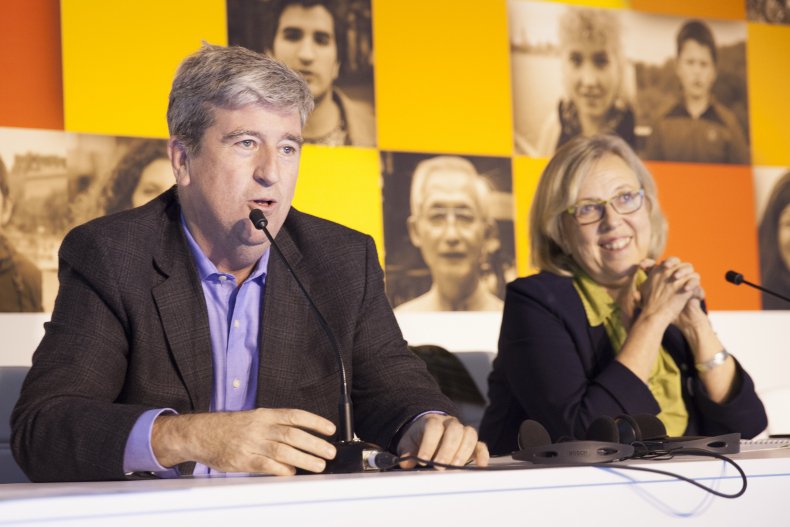
‘I am over the moon’
Green leader Elizabeth May said: “I am over the moon. It’s fantastic news!”
“It creates a very ambitious trajectory for reduction of emissions, but it’s what’s required. If we’re going to keep low-lying island states from going under water, that’s what’s required.”
“If we want to have a reasonable prospect of not having the Greenland ice sheet create five- to eight-metre sea level rise, it’s what’s required.”
“It’s a safer zone than two [degrees], which represents a lot of irreparable, irreversible damage to large parts of the world. So 1.5 is good.”
Video of Prime Minister Justin Trudeau speaking to the UN COP21 climate summit last week in Paris. Produced by Zack Embree for the National Observer.
The moves come just one week after Prime Minister Trudeau promised the world in his speech to the UN climate gathering that climate change would be a “top priority” for Ottawa.
But this latest statement about aiming for 1.5 Celsius has environmentalists —who haven’t been in the habit of congratulating their federal government after nine years of Harper rule —rushing to issue happy-with-Canada press releases.
“This is an incredibly promising signal that Canada really is ready to lead when it comes to ambition and securing a strong global climate deal. Now Canada has a chance to leverage this leadership across key pieces of this agreement and this is what we hope to see over the coming days,” said Steven Guilbeault of Montreal’s Équiterre in Paris.
Likewise, Karen Mahon, of ForestEthics, said: “Action and a strong deal in Paris will help Canada as it returns home and works closely with provinces to develop a plan that puts Paris promises into action.”
“Canada is redefining itself in Paris, but it will need to take its leadership home to prove that they really are back.”
Dale Marshal, of Environmental Defence, added Canada would confirm its climate leadership if it put in a “credible financing package” for a developing-country “Loss and Damage fund,” and continued work to get an ambitious mechanism that allows reviews of targets and financing before 2020.
Trudeau: ‘no time to waste’
It remains to be seen if the world’s nations agree to Canada’s urging to cap dangerous global warming at 1.5 C.
But praises for Canada come on top of heaps of laudings from Canadian First Nations leaders for backing the inclusion of Indigenous rights in the climate treaty process too. It’s a move opposed by the European Union and United States over fears it could leave them liable for climate damages.
Prime Minister Trudeau said last week in Paris: “Indigenous people have known for thousands of years about how to care of our planet. The rest of us have a lot to learn, and no time to waste.” SOURCE

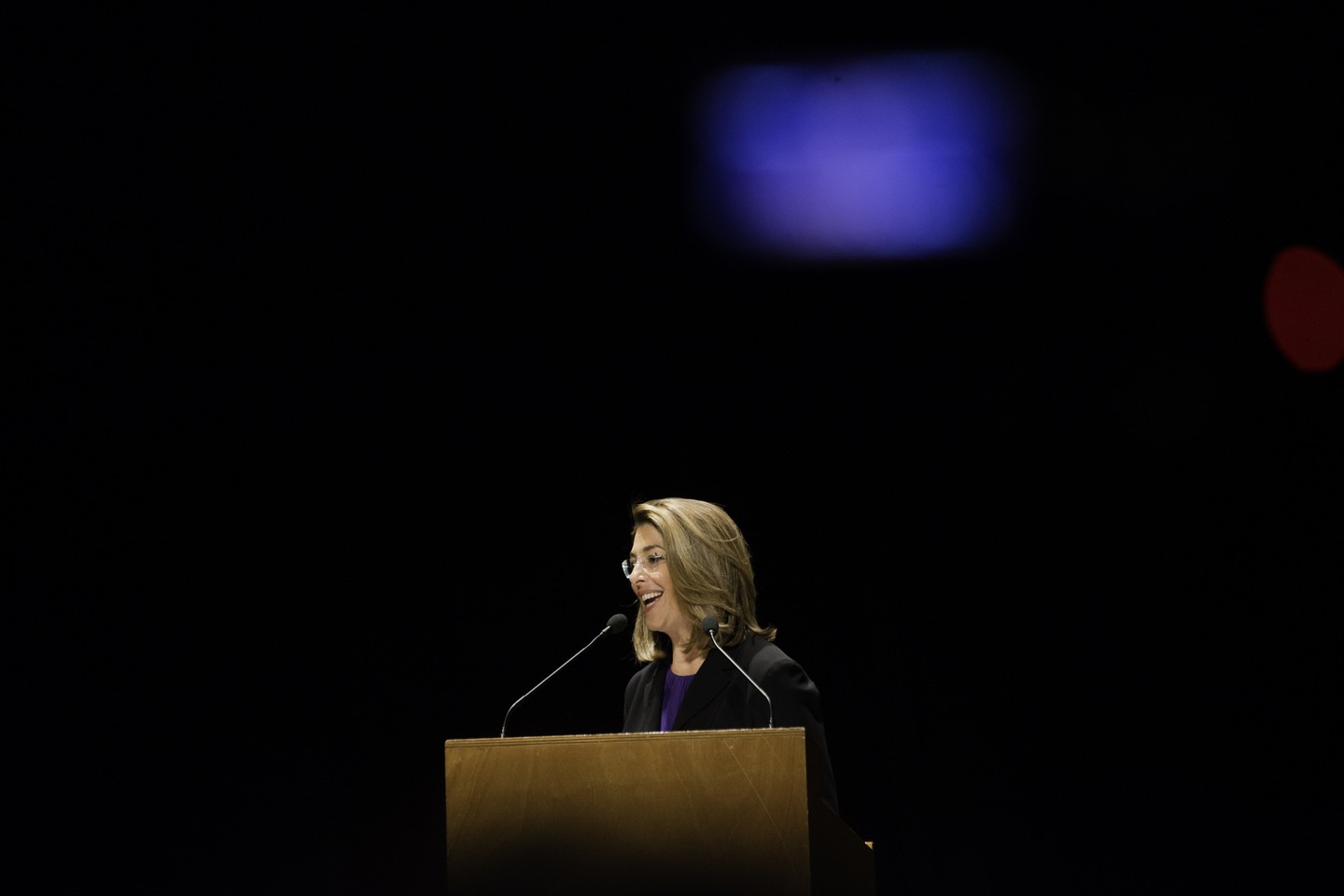
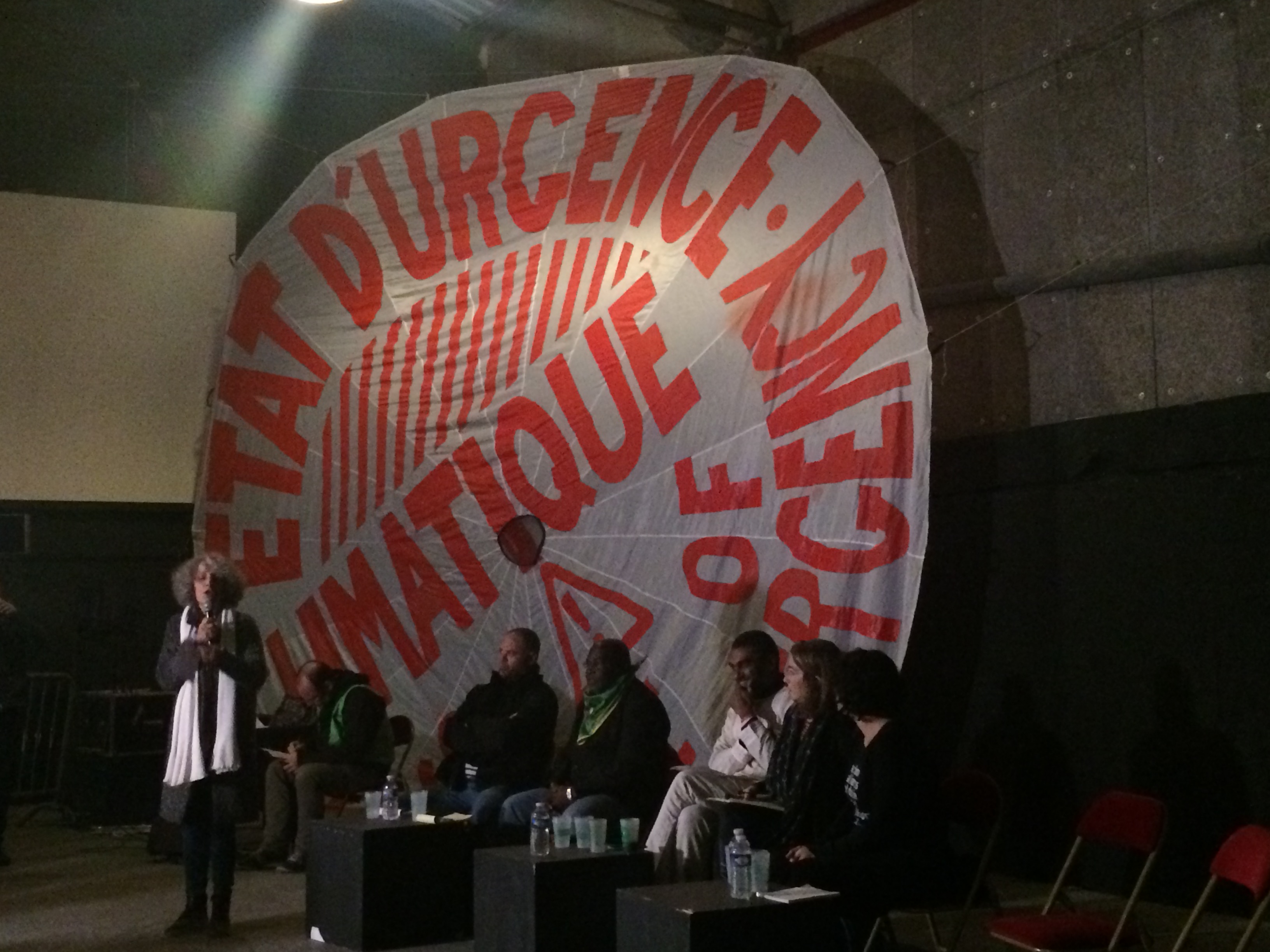

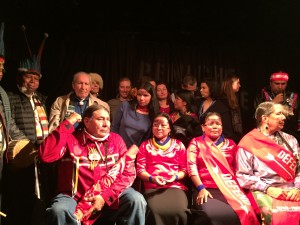
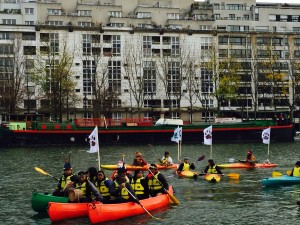 Despite their proximity to the consequences of climate change, indigenous communities have had to battle simply to be included in the international climate agreement that is expected to come out of the Paris talks next week. As late in the talks as Thursday — two days before the draft of a climate deal was sent to ministers to use as basis for upcoming negotiations — it seemed as if any mention of indigenous communities and indigenous rights
Despite their proximity to the consequences of climate change, indigenous communities have had to battle simply to be included in the international climate agreement that is expected to come out of the Paris talks next week. As late in the talks as Thursday — two days before the draft of a climate deal was sent to ministers to use as basis for upcoming negotiations — it seemed as if any mention of indigenous communities and indigenous rights 